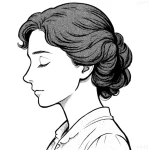“The ancients recommended us to sacrifice to the Graces, but Milton sacrificed to the Devil.”

- November 21, 1694 – May 30, 1778
- Born in France
- Philosopher, man of letters, historian
table of contents
Quote
“The ancients recommended us to sacrifice to the Graces, but Milton sacrificed to the Devil.”
Explanation
This quote reflects Voltaire’s critique of the contrasting approaches to morality and literature. He points out that while the ancient Greeks and Romans emphasized the importance of beauty, charm, and harmony (represented by the Graces), John Milton, through his epic work Paradise Lost, chose to delve into the darker, more complex aspects of human nature, particularly in his portrayal of Satan and the fall from grace. Voltaire’s words suggest that while the classical approach was centered around idealized virtues and grace, Milton took a different path, exploring themes of rebellion, free will, and moral ambiguity, which, in Voltaire’s view, could be seen as “sacrificing to the Devil.”
In modern contexts, this idea resonates with the tension between idealism and the exploration of darker or more complex aspects of human nature. While many traditional works of art or literature celebrate beauty, virtue, and simplicity, others, like Milton’s Paradise Lost, confront the complexities and contradictions of life, often delving into themes that challenge conventional morality. Voltaire’s quote highlights the shift in literature from classical ideals to more nuanced or even controversial explorations of good and evil.
A specific example of this principle can be seen in modern literature and art, where works often engage with darker themes or moral complexities, challenging societal norms and ideals. Writers like William Blake or even contemporary authors often explore these themes in ways that challenge traditional virtues, similar to Milton’s exploration of the Devil and the fall of man. Voltaire’s words remind us that literature and art can take different directions, either upholding the ideals of beauty and grace or grappling with the complexities of human existence.
Would you like to share your impressions or related stories about this quote in the comments section?



